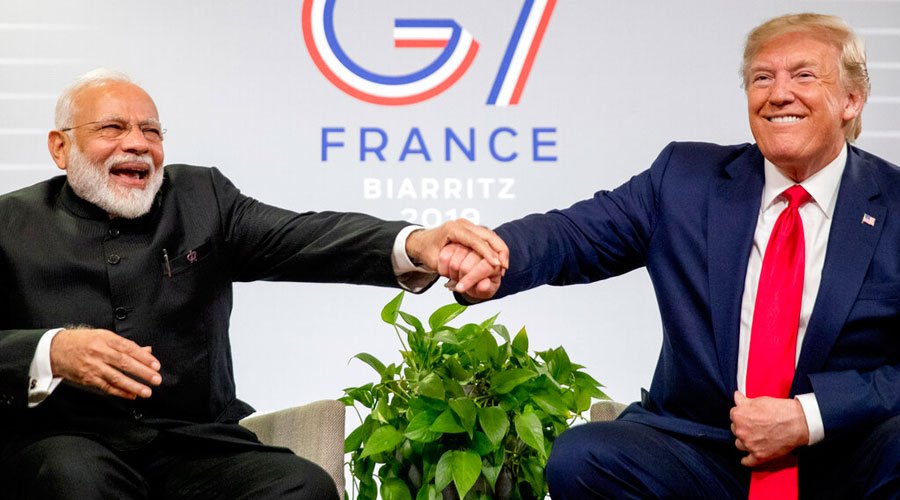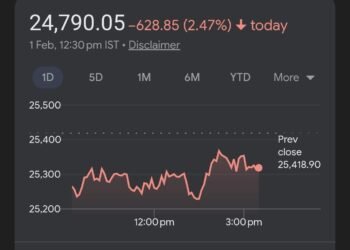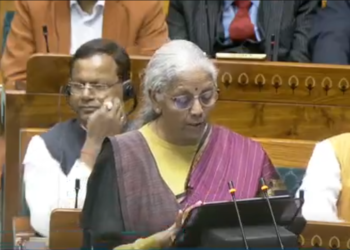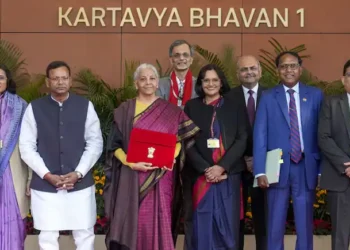Analysts warn that India’s absence from the G7 could impact its global influence and potentially embolden China, raising questions about the future of global governance and India’s strategic autonomy.
BY PC Bureau
New Delhi, June 2, 2025 – In a notable break from recent tradition, India has not received an invitation to the upcoming Group of Seven (G7) summit, scheduled to be held in Kananaskis, Alberta, from June 15-17 under Canada’s hosting. This marks the first time since 2018 that India will be absent from the forum, having consistently participated as a guest nation since 2019.
The exclusion has ignited concerns about India’s growing diplomatic isolation, set against a backdrop of strained bilateral relations and evolving geopolitical dynamics. This development, compounded by recent controversies surrounding India’s military engagement with Pakistan and increasing domestic political criticism, has triggered intense debate regarding the nation’s global standing and the Modi government’s foreign policy trajectory.
Since 2019, India had become a regular fixture at G7 summits, a testament to its burgeoning economic and geopolitical influence. French President Emmanuel Macron’s initial invitation to Prime Minister Narendra Modi for the Biarritz summit set a precedent, with India participating in subsequent summits hosted by the UK, Germany, Japan, and Italy. With a 2024 GDP surpassing that of several G7 members and its strategic importance as a counterweight to China in the Indo-Pacific, India’s near-permanent guest status appeared secure.
READ: Will Modi Tap Tharoor to Lead India’s Foreign Policy?
The G7, an informal gathering of leading industrialized democracies, addresses critical global issues. India’s repeated inclusion underscored its rising prominence, driven by its economic growth, strategic partnerships, and leadership within the Global South. However, Canada’s decision to omit India from this year’s summit, announced just months before the event, has fueled speculation about underlying tensions.
The exclusion coincides with a significant cooling of bilateral ties between India and Canada. Canada’s accusations of India’s involvement in the assassination of Sikh activist Hardeep Singh Nijjar and other violent incidents have cast a long shadow over the relationship. Sikh groups in Canada have actively lobbied Prime Minister Mark Carney against inviting Modi unless India fully cooperates with ongoing investigations. Ottawa’s increasingly firm stance suggests a deliberate shift, with Canadian officials maintaining that guest invitations remain under review, leaving Modi’s participation uncertain.
Sikh organizations are calling on Ottawa to break with a five-year tradition by not inviting Indian Prime Minister Narendra Modi to the G7 summit.
Canada is hosting the G7 leaders’ summit next month in Kananaskis, Alta., with the leaders from those nations expected to attend —… pic.twitter.com/InZBs3pOrV
— Parmjeet Singh (@psgazi_) May 31, 2025
This diplomatic chill follows a period of heightened tension stemming from former Prime Minister Justin Trudeau’s handling of the Nijjar case. While Carney has expressed a desire to mend relations, Canada’s current G7 presidency is further complicated by a looming tariff war with the United States. The decision to exclude India may also reflect domestic political pressures from Sikh communities in Canada and an alignment with U.S. concerns, particularly following India’s reported rejection of U.S. arms deals, including the F-35 program.
Adding another layer of complexity, social media posts on X suggest that U.S. President Donald Trump’s influence may have played a role in Canada’s decision. These posts point to India’s firm assertion that no external power mediated the recent ceasefire with Pakistan after Operation Sindoor. India’s Foreign Secretary Vikram Misri announced the ceasefire on May 10, 2025, following Indian Air Force strikes in response to the Pahalgam terror attack in April. Trump’s subsequent claim of brokering the ceasefire, which India vehemently denied, may have strained U.S.-India relations, potentially contributing to India’s G7 exclusion. Opposition leaders in India, such as Congress President Mallikarjun Kharge, criticized Trump’s claim as disrespectful to the 1972 Shimla Agreement, underscoring India’s long-standing policy of bilateral resolutions with Pakistan.
 READ: After CDS Bombshell, Unanswered Questions Whip Up Storm
READ: After CDS Bombshell, Unanswered Questions Whip Up Storm
Furthermore, India’s neutral stance on the Russia-Ukraine conflict and its abstentions from UN resolutions condemning Moscow have drawn scrutiny from G7 members, who have largely prioritized support for Ukraine. The 2024 G7 summit in Italy saw a commitment of $50 billion to Ukraine using frozen Russian assets, a move India did not publicly endorse. This divergence in foreign policy, coupled with India’s growing ties with Russia and its active participation in forums like BRICS and the Shanghai Cooperation Organization (SCO), may have positioned India as less aligned with the G7’s vision of a “rules-based international order.”
The G7 snub has reverberated within India, fueling domestic criticism of the Modi government. Opposition leaders, including Kharge and Jairam Ramesh, have seized upon the issue to question the efficacy of India’s foreign policy. Ramesh has argued that India’s diplomatic isolation is a direct consequence of the government’s “failure to engage transparently” on both military and diplomatic fronts.
India’s exclusion from the G7 summit raises significant concerns about its ability to shape global economic and security discussions, particularly as the G20, where India is a member, gains increasing prominence. Despite the G7’s declining share of global GDP, its influence on key global agendas remains substantial.
 READ: From Icon to Exile: Sharmila’s Silence in Manipur’s Dark Hour
READ: From Icon to Exile: Sharmila’s Silence in Manipur’s Dark Hour
Analysts warn that India’s perceived isolation could embolden China, which has often criticized the G7 as an outdated “club of democracies.” India’s absence may also weaken its strategic positioning as a crucial counterbalance to China in the Indo-Pacific, particularly within the Quad framework. Public sentiment reflected on X reveals frustration, with some users accusing Western nations of “lecturing” India and hindering its defense self-reliance by blocking arms supplies. Others suggest India should adopt a more assertive foreign policy, demanding clarity on bilateral issues before engaging with the G7.
As the Modi government navigates this diplomatic setback, the international community will be watching closely to see whether India can effectively reclaim its seat at the global high table. With the evolving global order and questions surrounding the G7’s long-term relevance, India’s absence may also spur broader discussions about reforming global governance structures to better reflect the shifting dynamics of the 21st century.













